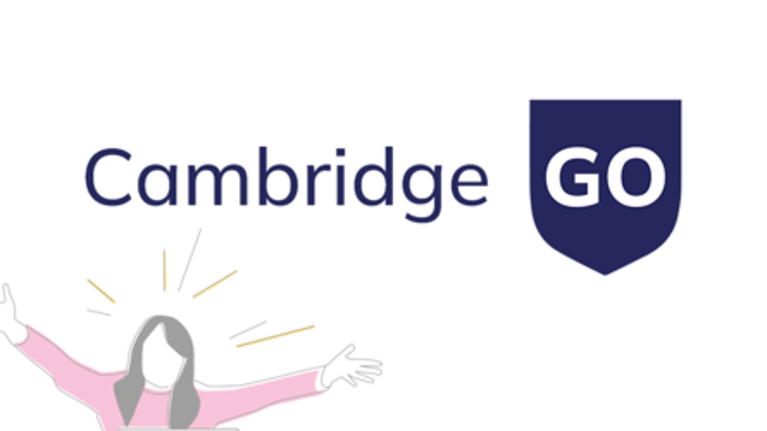A/AS Level English Literature B for AQA Digital Student Book (2 Years)
Overview
Written for the AQA A/AS Level English Literature B specifications for first teaching from 2015, this enhanced digital resource is suitable for all abilities. Helping bridge the gap between GCSE and A Level, the unique three-part structure provides essential knowledge and allows students to develop their skills through a deeper study of key topics whilst encouraging independent learning. Digital Editions include rich digital content such as video tutorials and extensive annotation tools. Available online and on tablet devices through the Cambridge Reader app.
Features
- A single one-year site licence for an unlimited number of teachers and students.
- The Digital Student Books are fully customisable and interactive, with extensive annotation and bookmarking tools making texts more accessible for students.
- The Digital Student Books feature rich digital content, including video tutorials covering key specification topics and interviews with writers and academics.
- The Digital editions allow teacher–student messaging, helping you connect with your class in a timely and practical way.
- Available online and on tablet devices through the Cambridge Reader app.
- Suitable for all abilities, incorporating differentiated support and providing opportunities to stretch the more able and support those who need it.
- Unique three-part structure will help bridge the gap between GCSE and A Level, support students in developing their knowledge and skills, and prepare them for assessment, studies and life beyond A Level.
- Specifically addressing the revised specification, these resources offer support for the demands of unseen poetry and developing skills in comparing texts within literary genres.
- Supports both AS and A Level teaching of the new linear specification with AS content signposted throughout.
- Free Digital Teacher’s Resources with each Digital Edition allow for easy linking and cross reference, and provide comprehensive planning support with additional opportunities for differentiation and extension.
Contents
- Introduction
- BEGINNING:
- 1. Key concepts for literary study
- 2. Poetry
- 3. Drama
- 4. The novel
- DEVELOPING:
- 5. Tragedy
- 5.1 Introduction to tragedy
- 5.2 Development of tragedy
- 5.3 Aspects of tragedy
- 5.4 Voices and perspectives in tragedy
- 5.5 Bringing it all together
- 6. Comedy
- 6.1 Introduction to comedy
- 6.2 Development of comedy
- 6.3 Aspects of comedy
- 6.4 Voices and perspectives in comedy
- 6.5 Bringing it all together
- 7. Crime writing
- 7.1 Introduction to crime writing
- 7.2 Development of crime writing
- 7.3 Elements of crime writing
- 7.4 Narrative form and plot devices in crime writing
- 7.5 Character types in crime writing
- 7.6 Representation in crime writing
- 7.7 Bringing it all together
- 8. Political and social protest writing
- 8.1 Introduction to political and social protest writing
- 8.2 Development of political and social protest writing
- 8.3 Elements of political writing
- 8.4 Representation in political writing
- 8.5 Bringing it all together
- 9. Literary theory
- 9.1 What is literary theory?
- 9.2 Theoretical perspectives
- 9.3 Value and the canon
- 9.4 Narrative
- 9.5 Feminism
- 9.6 Marxism
- 9.7 Eco-critical theory
- 9.8 Post-colonial theory
- 9.9 Approaching the non-exam assessment
- 9.10 Bringing it all together
- 10 Critical and creative responses to literature
- 10.1 Introducing criticism and creativity
- 10.2 Reading as a writer, writing as a reader
- 10.3 Reading
- 10.4 Writing
- 11 Preparing for your exam
- 11.1 Examined assessment and non-exam assessment
- 11.2 Writing critical essays
- 11.3 Writing creative responses to literary texts
- 11.4 Bringing it all together
- ENRICHING:
- 12 Tragedy
- 13 Comedy
- 14 Crime writing
- 15 Political and social protest writing
- 16 Literary theory
- 17 Critical and creative responses to literature
- Index
- Acknowledgements
Brighter Thinking Blog
Keep up to date with the latest classroom tips and educational trends from our brighter thinkers.
Visit the blogCatalogues and Ordering
Looking for something in particular or just browsing? View our catalogues to see our full range of print and digital books.
View and downloadAdvice on useful tools
Advice on useful tools, activities and timetabling from teachers experiencing school closures.
Cambridge GO
All our supporting resources have now moved to Cambridge GO – the new home for your Cambridge digital content.
Listen to our podcast
Listen to our podcast to discover teaching inspiration & advice from leading educational thinkers.








